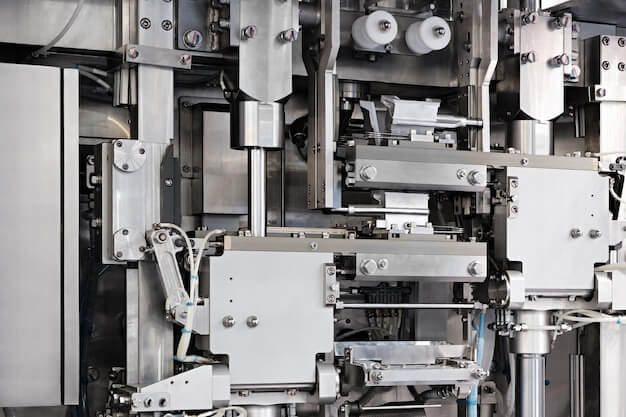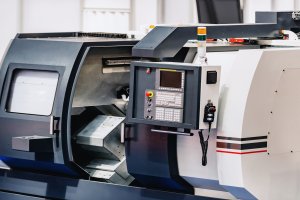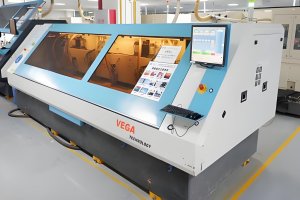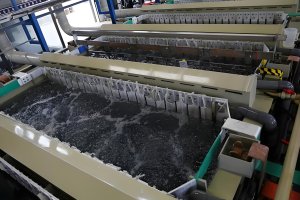Sustainable Manufacturing Practices in the Modern World
Sustainable manufacturing practices refer to those methods or techniques applied in production, which aim at diminishing negative environmental impacts while conserving energy and natural resources. They also look to ensure safe working conditions for employees and build economically sound processes that reduce waste and unnecessary costs. In today’s rapidly evolving industrial landscape, these practices are not just about being environmentally responsible; they are a crucial component of long-term business strategies. The adoption of these sustainable methods can lead to greater operational efficiency, innovation, competitiveness, and improved public perception—a significant advantage in our increasingly eco-conscious world.
Key Principles of Sustainable Manufacturing
Sustainable manufacturing practices are governed by several key principles, all aimed at attenuating the negative environmental impact. First and foremost is an efficient usage of resources which translates to minimizing waste and optimizing energy use; for instance, replacing traditional production methods with leaner processes that conserve materials and power. The second principle underlines the importance of emphasizing renewable materials and clean technology in production cycles – such as using recycled metals instead of virgin ores or leveraging green energy sources like solar and wind power at factories. Finally, sustainable manufacturing promotes circular economy principles where products are designed not just with user needs in mind but also their end-of-life stage for easy disassembly and recycling, fosteri.ng a closed loop system.
Benefits of Sustainable Manufacturing
Sustainable manufacturing practices offer myriad benefits to operators and society at large, key among them being the reduction in environmental impact. For instance, relying upon renewable energy source and efficient production processes significantly reduces carbon emissions while ensuring conservation of natural resources such as water and minerals. In addition to environmental conservation, sustainable manufacturing also offers compelling economic advantages. Utilization of resource-efficient technologies and practices results in notable cost savings by minimizing waste disposal costs and reducing raw material consumption rates. Furthermore, companies that embrace sustainable manufacturing often enjoy a positive brand image and bolstered consumer appeal particularly amongst environmentally conscious consumers. This can be a significant market differentiator and an effective way for businesses to enhance their competitive edge.
Challenges Faced by Sustainable Manufacturers
Sustainable manufacturing is a noble pursuit, aiming to minimize environmental impact while producing goods. However, manufacturers committed to this path encounter several significant challenges. These obstacles not only test their resolve but also their ingenuity in overcoming them.
Key Challenges in Sustainable Manufacturing
- High Initial Costs: Transitioning to sustainable practices often requires substantial upfront investment in new technologies, materials, and training.
- Supply Chain Complexity: Establishing a green supply chain involves scrutinizing every link for environmental impact, which can be complex and resource-intensive.
- Regulatory Compliance: Navigating the maze of environmental regulations and standards can be daunting, requiring dedicated resources to ensure compliance.
- Technological Adaptation: Keeping pace with rapidly evolving eco-friendly technologies demands continuous learning and adaptation.
Addressing the Challenges
| Challenge | Impact | Strategies for Overcoming |
|---|---|---|
| High Initial Costs | Financial strain on operations | Seeking grants and subsidies, investing in scalable technologies |
| Supply Chain Complexity | Operational hurdles | Partnering with certified green suppliers, implementing traceability |
| Regulatory Compliance | Legal and financial risks | Engaging compliance experts, adopting proactive environmental management systems |
| Technological Adaptation | Constant need for upskilling | Continuous training programs, collaboration with technology providers |
Despite these challenges, the pursuit of sustainable manufacturing is not only a moral imperative but also a strategic business decision. Overcoming these hurdles requires a combination of innovation, strategic planning, and a commitment to environmental stewardship. By addressing these challenges head-on, sustainable manufacturers can pave the way for a greener, more sustainable future.
Successful Case Studies in Sustainable Manufacturing
The advancement of sustainable manufacturing is evident in a number of companies that have integrated innovative eco-friendly practices. Company X, for instance, has significantly increased their sustainability through the integration of renewable energy sources for powering their operations. A prime example of this includes constructing solar panels, thus minimizing reliance on non-renewable power grid electricity and reducing overall carbon emissions. Similarly, company Y has concentrated their efforts on product design specifically purposed for recyclability. This initiative resulted in creating packaging that can be easily repurposed or recycled, thereby decreasing waste and encouraging circular economy concepts. Lastly, company Z demonstrated commitment to water conservation by integrating water-saving technologies into their production processes. Efficient measures such as these not only assist in preserving increasingly scarce freshwater resources but also result in substantial cost savings. These cases collectively demonstrate the positive impact of embracing sustainable practices in manufacturing.
Other Articles You Might Enjoy
- Exploring the World of CNC Machining(what is cnc Valentina)
What is CNC? This acronym stands for Computer Numerical Control, a technology that has significantly revolutionized various sectors including manufacturing, engineering, and design. CNC machining is automated control over specialized…
- Environmental Considerations in CNC Machining: Material Selection for Sustainable Manufacturing
Introduction to CNC Machining and its Environmental Considerations CNC machining is an advanced manufacturing process wherein pre-programmed software dictates the movement of factory machinery and tools. It is recognised for…
- Precision CNC Machining for High-Performance Industrial Machinery
Precision CNC Machining for High-Performance Industrial Machinery The process of Precision CNC (Computer Numerical Control) machining is at the core of manufacturing high-performance industrial machinery. This technique leverages a computer's…






